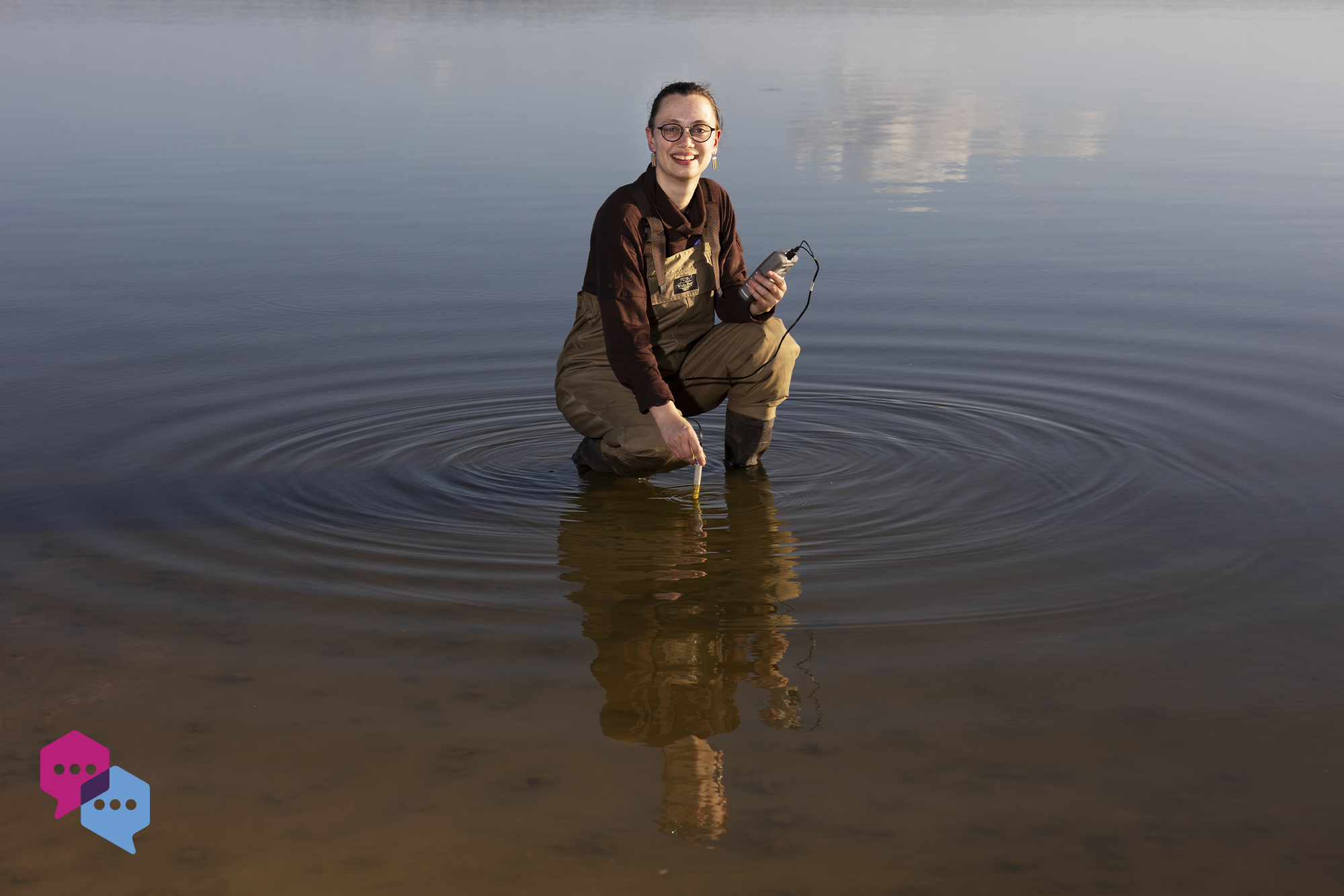Wayana Dolan is a PhD student in the Department of Earth, Marine, and Environmental Sciences within the UNC College of Arts and Sciences. Using satellite imagery and field data, she studies how the interactions between lakes and rivers in Arctic deltas impact lake ice cover and carbon dioxide production.
Q: How did you discover your specific field of study?
A: I grew up as a severe weather enthusiast and participated in a lot of work parties in my local watershed growing up, so I went into my undergraduate program interested in some sort of Earth science. I ended up going to Occidental College, a school whose Earth science department at the time specifically focused on hard rock geology. About two years in, I realized that hard rock geology was not my passion. I had an amazing advisor who was very receptive when I told her that I was interested in pursuing other options for research.
She encouraged me to apply for an internship program at Caltech and NASA, and I ended up working at the Jet Propulsion Laboratory using remote sensing to detect ethylene gas in Earth’s atmosphere — a gas commonly found in fire smoke or, in smaller quantities, emitted from bananas. As part of that experience, I got to work with another amazing advisor, learned how to code, and realized that, while atmospheric chemistry was not what I wanted to study in the long term, I loved remote sensing (a.k.a. using data from instruments aboard satellites to study earth’s surface and atmosphere). During my internship, I attended a conference and sat next to someone at a talk who I ended up chatting with — he was a graduate student from the lab that I am currently in at UNC, and I thought his work sounded really interesting.
Q: Academics are problem-solvers. Describe a research challenge you’ve faced and how you overcame it.
A: My master’s thesis at Carolina was on using satellite imagery to detect ice freeze-up and breakup on Alaskan rivers. I loved the topic and poured a lot of myself into the success of the project. We submitted the research to a journal, and a really good reviewer found an issue with the method that my advisor and I had both missed that made it difficult to publish the work.
Right after that happened, I had a hard time feeling like a competent scientist and realized that, like many graduate students, I was holding a lot of my self-worth in how my research was going. I think this experience was my wakeup call that a key part of science is that it doesn’t always work the way you want it to the first time and that, as a student, it is important to make time to find value and community outside of your work. As a result, I spent a lot of time developing non-academic hobbies and community support networks that have helped me keep a better work-life balance, and I’ve also become a lot more comfortable with facing hurdles and bouncing back when research doesn’t go as expected.
Q: Describe your research in five words.
A: Water mazes in Arctic deltas.
Q: Who or what inspires you? Why?
A: People who are good teachers, both in terms of explaining concepts and in terms of supporting and advocating for their students. I’m teaching my first class this year as an instructor of record and have learned/am still learning an incredible amount both from my advisor, Tamlin Pavelsky, and one of my committee members, Megan Plenge, whose research focus is on geoscience education.
Q: If you could pursue any other career, what would it be and why?
A: Meteorologist/severe weather expert. I loved it growing up and, since moving to North Carolina, have enjoyed observing local thunderstorms and monitoring weather forecast models. I think I am drawn to weather because it frequently and directly impacts people. Plus, nature can cook up some pretty wild stuff!


